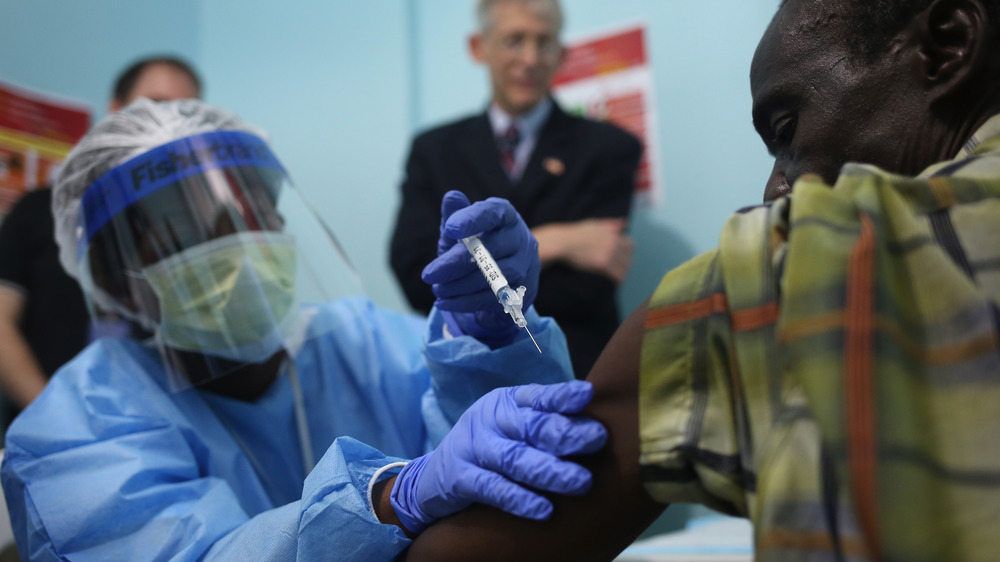What You Should Know About The New Ebola Outbreak
New cases of the highly contagious disease Ebola have prompted the Centers for Disease Control and Prevention to issue a travel warning for all passengers to the US from the countries of Guinea and the Democratic Republic of the Congo (DRC) (via CNBC). All affected passengers from the two countries traveling to the United States will be diverted to six airports across the US where their information will be collected and shared with the CDC and local health departments (via CNN).
As the global community is still fighting the COVID-19 pandemic, an outbreak of another contagious infectious disease has health officials on alert. The two affected countries happened to be where the worst Ebola outbreaks in history occurred in 2014. The World Health Organization (WHO) is on the ground claiming 13 cases have been confirmed in Guinea with four more probable cases. In the DRC, eight cases and four deaths have been confirmed from Ebola, however there have been no new cases since February 22.
Ebola is caused by various forms of ebolavirus (via CDC). It was first discovered in 1976 surrounding the Ebola River in the DRC. Several outbreaks have occurred throughout Africa since its discovery. It is believed that the virus spread to humans from infected animals. Unlike COVID-19, which can be spread through asymptomatic individuals, Ebola is spread through either bodily fluids, or the blood of clearly sick people or people who have died from the disease. Therefore, it is unlikely to spread as widely as COVID-19 has.
How this Ebola outbreak could be different than previous ones
Symptoms of Ebola virus disease (EVD) can occur anywhere between 2 to 21 days after contact and include but are not limited to fever, body aches, weakness, vomiting, diarrhea, and unexplained hemorrhaging. Without adequate resources and treatment most people infected succumb to the disease. However the tide is changing on that front as well.
The 2014 West African Ebola outbreak spanned multiple countries and lasted approximately two years. It resulted in nearly 30,000 cases and over 11,00 deaths. But this time around, health officials have a new weapon in their arsenal: vaccines. In 2019 the US Food and Drug Administration approved the first vaccine to help in the fight of Ebola known as Ervebo.
It is reported that the WHO has administered vaccines to the affected regions in the DRC and is working on getting doses to Guinea. In Guinea 500 people have been identified as having come in contact with the virus and are being tracked through public health measures. So far 1,100 people have been vaccinated in the region since the outbreak began last month with more doses on the way.
While Ebola is concerning on the global front, it appears that improvements in public health measures and vaccine availability will help mitigate and end the outbreak sooner and with less loss than those in the past.


